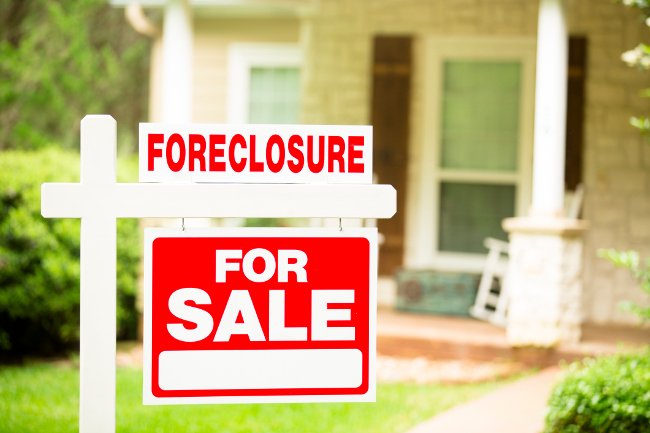 Going through a foreclosure can cause a lot of stress, not only emotionally, but financially as well. Unfortunately, foreclosures are common and can happen to anyone under a variety of circumstances. The after effects of a foreclosure can haunt those who lost their homes for years.
A loss of a job, health problems, unexpected tragedies, divorce, and so much more can contribute to a financial hardship resulting in a foreclosure. It may seem impossible to recover, but there is a light at the end of the tunnel. You can be proactive and work your way out to the other side.
Many people who have gone through a foreclosure have purchased new homes and moved on with their lives. But, it does take some education and a lot of hard work to stay on track to ensure you will not find yourself in the same circumstances again.
In many markets, rents have skyrocketed while interest rates are holding steady so there is a ton of motivation to purchase instead of rent. During the housing crash, many lost their homes, however, many of the millions of people who lost their homes are now on track to purchase again or already have.
Going through a foreclosure can cause a lot of stress, not only emotionally, but financially as well. Unfortunately, foreclosures are common and can happen to anyone under a variety of circumstances. The after effects of a foreclosure can haunt those who lost their homes for years.
A loss of a job, health problems, unexpected tragedies, divorce, and so much more can contribute to a financial hardship resulting in a foreclosure. It may seem impossible to recover, but there is a light at the end of the tunnel. You can be proactive and work your way out to the other side.
Many people who have gone through a foreclosure have purchased new homes and moved on with their lives. But, it does take some education and a lot of hard work to stay on track to ensure you will not find yourself in the same circumstances again.
In many markets, rents have skyrocketed while interest rates are holding steady so there is a ton of motivation to purchase instead of rent. During the housing crash, many lost their homes, however, many of the millions of people who lost their homes are now on track to purchase again or already have.
How to Recover After a Foreclosure
 Going through a foreclosure can cause a lot of stress, not only emotionally, but financially as well. Unfortunately, foreclosures are common and can happen to anyone under a variety of circumstances. The after effects of a foreclosure can haunt those who lost their homes for years.
A loss of a job, health problems, unexpected tragedies, divorce, and so much more can contribute to a financial hardship resulting in a foreclosure. It may seem impossible to recover, but there is a light at the end of the tunnel. You can be proactive and work your way out to the other side.
Many people who have gone through a foreclosure have purchased new homes and moved on with their lives. But, it does take some education and a lot of hard work to stay on track to ensure you will not find yourself in the same circumstances again.
In many markets, rents have skyrocketed while interest rates are holding steady so there is a ton of motivation to purchase instead of rent. During the housing crash, many lost their homes, however, many of the millions of people who lost their homes are now on track to purchase again or already have.
Going through a foreclosure can cause a lot of stress, not only emotionally, but financially as well. Unfortunately, foreclosures are common and can happen to anyone under a variety of circumstances. The after effects of a foreclosure can haunt those who lost their homes for years.
A loss of a job, health problems, unexpected tragedies, divorce, and so much more can contribute to a financial hardship resulting in a foreclosure. It may seem impossible to recover, but there is a light at the end of the tunnel. You can be proactive and work your way out to the other side.
Many people who have gone through a foreclosure have purchased new homes and moved on with their lives. But, it does take some education and a lot of hard work to stay on track to ensure you will not find yourself in the same circumstances again.
In many markets, rents have skyrocketed while interest rates are holding steady so there is a ton of motivation to purchase instead of rent. During the housing crash, many lost their homes, however, many of the millions of people who lost their homes are now on track to purchase again or already have.

